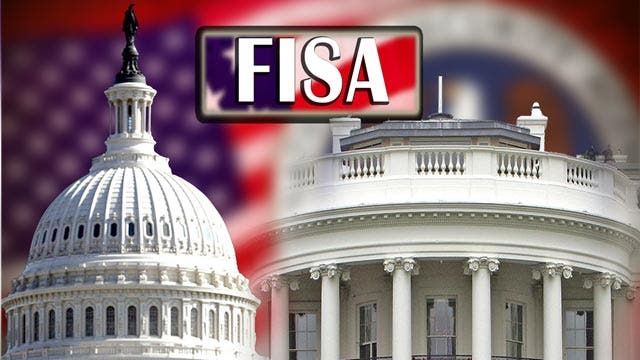U.S. intelligence officials released newly declassified information Saturday stating the National Security Agency’s controversial programs gathering millions of phone and email records helped foil “dozens of potential terror plots.”
The three-page document regarding the NSA programs was released to congressional intelligence committees and states the plots were thwarted in the U.S. and more than 20 other countries. The data is destroyed every five years, according to the document.
The officials also said the NSA checked just 300 phone numbers last year against its database of millions of U.S. phone records gathered daily, an attempt to argue the surveillance programs are less sweeping than alleged.
They also said they are working to declassify information on the dozens of plots NSA chief Gen. Keith Alexander said were disrupted, to show Americans the value of the programs, but said they want to make sure they don't inadvertently reveal parts of the U.S. counterterrorism playbook in the process.
The programs were known to Washington lawmakers but unknown to the public until a series of new stories this month in The Guardian and The Washington Post, leaked by former NSA contractor Edward Snowden, who remains in hiding in Hong Kong.
"In recent years, the intelligence gathered under them has contributed to the disruption of dozens of potential terrorist pots here in the homeland and in more than 20 countries around the world,” the documents state. “We are working to be able to provide more information about this."
The officials offered more detail on how the phone records program helped the NSA stop a 2009 Al Qaeda plot to blow up New York City subways.
They say the program helped them track a co-conspirator of Al Qaeda operative Najibullah Zazi, though it's not clear why the FBI needed the NSA to investigate Zazi's phone records because the FBI would have had the authority to gather records of Zazi's phone calls after identifying him as a suspect, rather than relying on the sweeping collection program.
In addition, critics argue, the initiating or central lead came from British intelligence and its "Operation Pathway" that was already monitoring a suspect email account overseas.
The disclosures have sparked debate and legal action against the Obama administration by privacy activists who say the data collection goes far beyond what was intended when expanded counterterrorism measures were authorized by Congress after the terror attacks of Sept. 11, 2001.
Intelligence officials said Saturday that both NSA programs are reviewed every 90 days by the secret court authorized by the Foreign Intelligence Surveillance Act.
Under the program, the records, showing things like time and length of call, can only be examined for suspected connections to terrorism, they said.
The Associated Press contributed to this report.













































